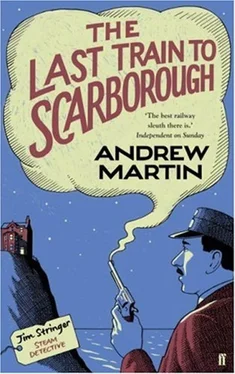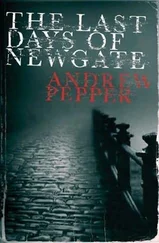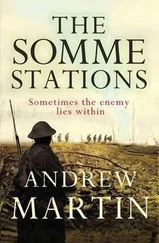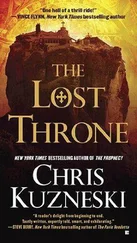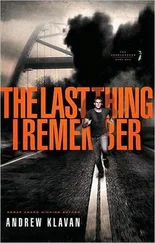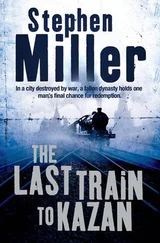With every new remark that he made more of the truth – which was not quite as Fielding saw it – came home to me. He too was now breathing wrongly, fighting for it, and rocking on the bed as he did so. His dainty feet were raised from the floor, so that he looked like a child too short for the school form. He had put on a soft-tasselled hat for his own death; a species of indoor hat – a smoking hat, as I believed it was called. He was not smoking but held some long implement – not the needle, which was by his side – but some other long implement, which he passed constantly from left to right hand. If I might lay my own hands on either it or the other… But that was impossible without air, and I found myself dreaming – and it was a kind of floating dreaminess – about a gun. That would be so much faster, and I heard myself wasting air by saying, 'I ought to shoot you down.'
How had he carted Blackburn, a big fellow, down the stairs? The window. The bed in the small room was level with it. Fielding might have fed the body through, and it would then have dropped directly to the Prom; Fielding would have sent the suit down after. He himself, in that different world in which everyone could walk, would have descended by the stairs and the streets, and dragged Blackburn into the water.
… But I couldn't believe I had that quite right. It was odds- on that a body dropped into the harbour would turn up again. I stumbled a little way forward.
'Spooning, you would call it,' Fielding was saying. 'He was the first at it, and then you. She spoons with you in the presence of the man who pays the bills. Well, I am sparing you a good deal of expense…'
And he seemed to concentrate hard on taking a breath, as though he might out-think the gas, then the word burst out of him:
'Distemper… costlier than you might think when bought in bulk… wallpaper at a shilling a roll…'
With great effort he took another breath; he was better at it than me. But I could see that it did not come easily, and he now had to pause and fall silent every few words.
'… And the Lady forever changing her mind about the colour.'
It came to me that I was now nearer to him, to the dangerous implement in his hand, and the other one beside him on the bed.
'No!' I said, and I could not say any more, and it was a wasted word into the bargain. But I had meant to say that the Lady's colour was lavender.
Two paces to go before I was at Fielding and the bed. But why kill a man who was dying anyway? I looked to the windows: the first one – closed. To the second one – closed. I should have smashed the glass. I had wasted my time in not doing it, and accordingly I had wasted my life. The room was whirling at lightning speed; my legs were buckling under me and I wanted to be on the floor, stretched right across it; I could not support the weight of my own head. I tried to take a breath but nothing came. I saw bookshelves, a bed, fireplace, Fielding himself, but there was no air in-between any of these objects. I was drowning on dry land, drowning on the first floor but I was not ignorant. Rather, Fielding was. I recalled those late silences of the Lady, which were the true indication of her feelings towards me, which were no feelings at all.
'You tell me… that you have hopes of becoming a… solicitor,' Fielding seemed to be saying, and his voice had gone very high on that last word; he'd fairly squeaked it out. 'But there is no royal road to the acquisition of knowledge… Mr Stringer, you were born to a world of dirt… dirt and dust and coal… and that…'
I managed another step forwards as he unfolded the jewelled implement in his hand.
'Your presumption,' he said, rocking faster now, his face pink, far, far too pink. 'It scarcely… It takes one's breath… It takes the breath…'
I first thought that the implement might be for the fine adjustment of shirt cuffs, for he held it positioned over his left wrist. He made a smooth, practised movement.
'This gas… too… slow,' he said, and he breathed in, making a fearful dry squeaking, before swiftly transferring the implement to his other hand, and moving it over the other wrist. He raised it to his neck, and for an instant I thought: The contraption adjusts shirt collars too – just the thing for a faddish fellow. But Adam Rickerby, standing behind me, called out: 'He'll 'ave blood all over!'
Fielding moved the thing quite slowly and carefully from right to left across his neck.
And he tilted his head at me.
'And you believe that he'd killed Blackburn?' enquired the Captain.
I had the idea that the question was asked out of duty, that he was now restless, his mind elsewhere. I believed that I had understood most things in the seconds before Fielding's death, and now that I could recall that understanding, I gave my theory in outline to the Captain. And while speaking I thought the thing through in a different way.
All the trinkets in those drawers of Fielding's, too neatly stored in boxes: they signified a lack of love. Oh, he had the friendship of Vaughan all right, and I pictured the two of them in the ship room, smoking silently: Vaughan lying flat on the couch, Fielding sitting daintily, periodically crossing his legs in a different way. But anyone could have the friendship of Vaughan: he was like a spaniel, and about equally given to cocking his leg in public. The love of Amanda Rickerby was a different matter. Ray Blackburn, a handsome, well set-up man of marriage-able age, had been the beneficiary of her love, and she had kept the company badge as a token of it. He had been to Scarborough several times before the fatal night, although never before to Paradise. I saw the two of them about the town, falling into conversation in the railway station perhaps. She sees him coming along the platform, his dark face further darkened and made more impressive by coal dust, and she chooses to ask him, rather than the funny-looking little platform guard, the time of the train. Where would she want to go to? Hull, Stockton, York, Leeds? It did not matter; the trip would only be a vague plan, anyhow. They would find that they had walked and talked for the entire length of the platform, that they had gone together through the station gates… and then they had the whole of Scarborough in which to walk and talk. I did not put it past her to have been drawn by his sober character, which came out of his strong religion. He might keep her on the straight path.
Later on, Blackburn would have been torn. He could not resist the opportunity to travel to Scarborough and to stay at Paradise when the chance arose in the course of his work. I supposed that he'd passed some of the night in Amanda Rickerby's bed. I saw the two of them there, sweating under the sheets in the hot talcum smell of the lavender room, and Fielding lying in his own bed just across the landing and knowing. Why? Because he had been listening for it. Had he seen them about the town beforehand? •
It would make a married man feel strange to be in that lavender room, at least in the moments before and after the event, the prospect of which had drawn him there. Blackburn had gloomed about the house throughout his stay, which was down to guilt, and his own serious-minded nature.
Earlier on, Vaughan had showed him the special cards, which was just exactly the wrong thing to do to a man of Blackburn's mind. I pictured the two of them walking through the Old Town in the evening: the lobster pots rocking in the wind; the flashing of the lighthouse showing by modern means all the oldness of the Old Town. Blackburn would wonder what he was doing there, with this strange, unmannerly fellow loping along too close-by his side.
Blackburn had no doubt blown up at Vaughan, who had taken stick from the coppers ever since for an act he was only now beginning to think of as shameful. But it might become less shameful every time it was repeated. I believed he half hoped I would walk into the copper shop on Castle Road to say he'd shown me the cards as well, but that it had only been in fun and nothing had come of it.
Читать дальше
